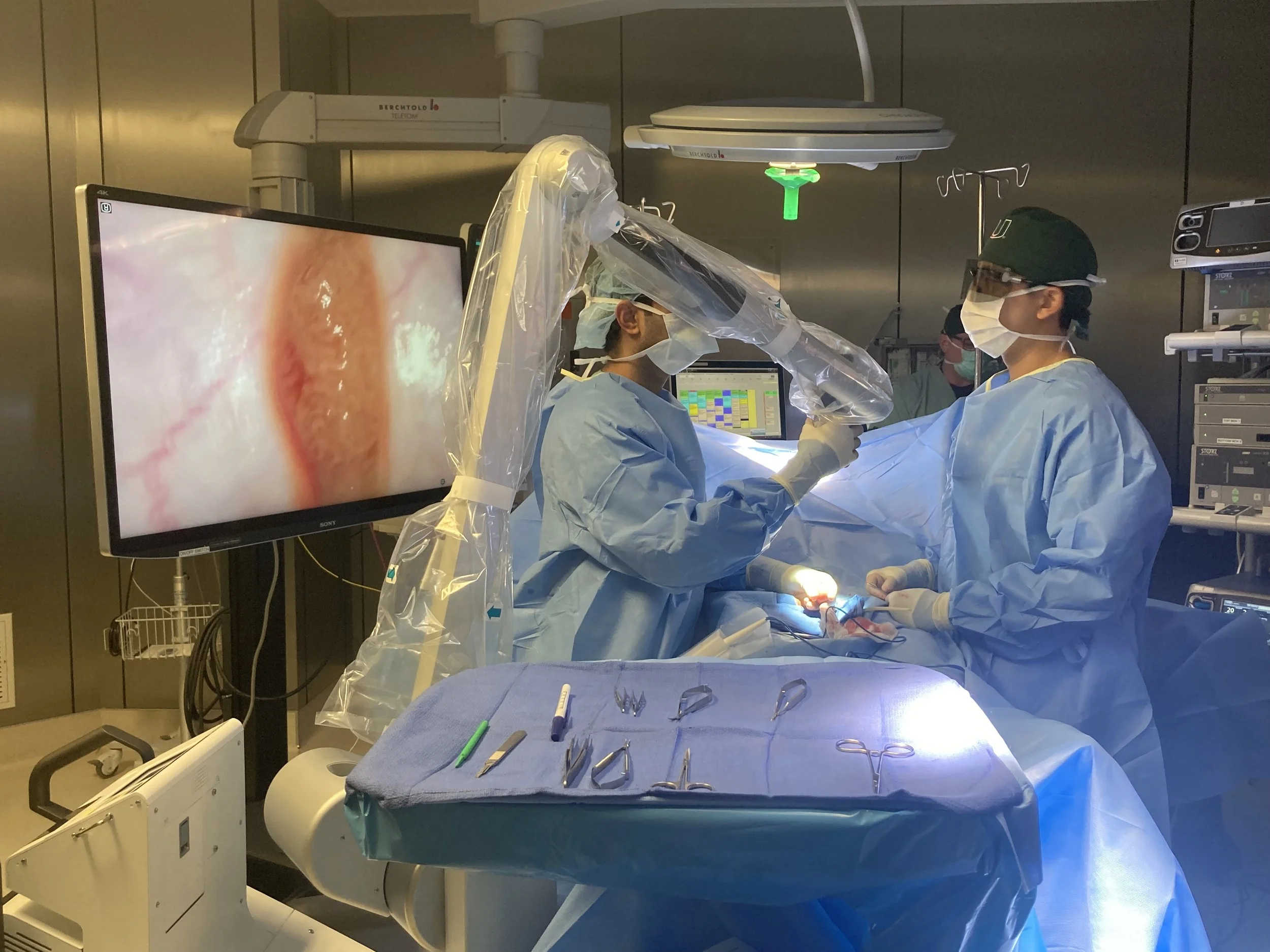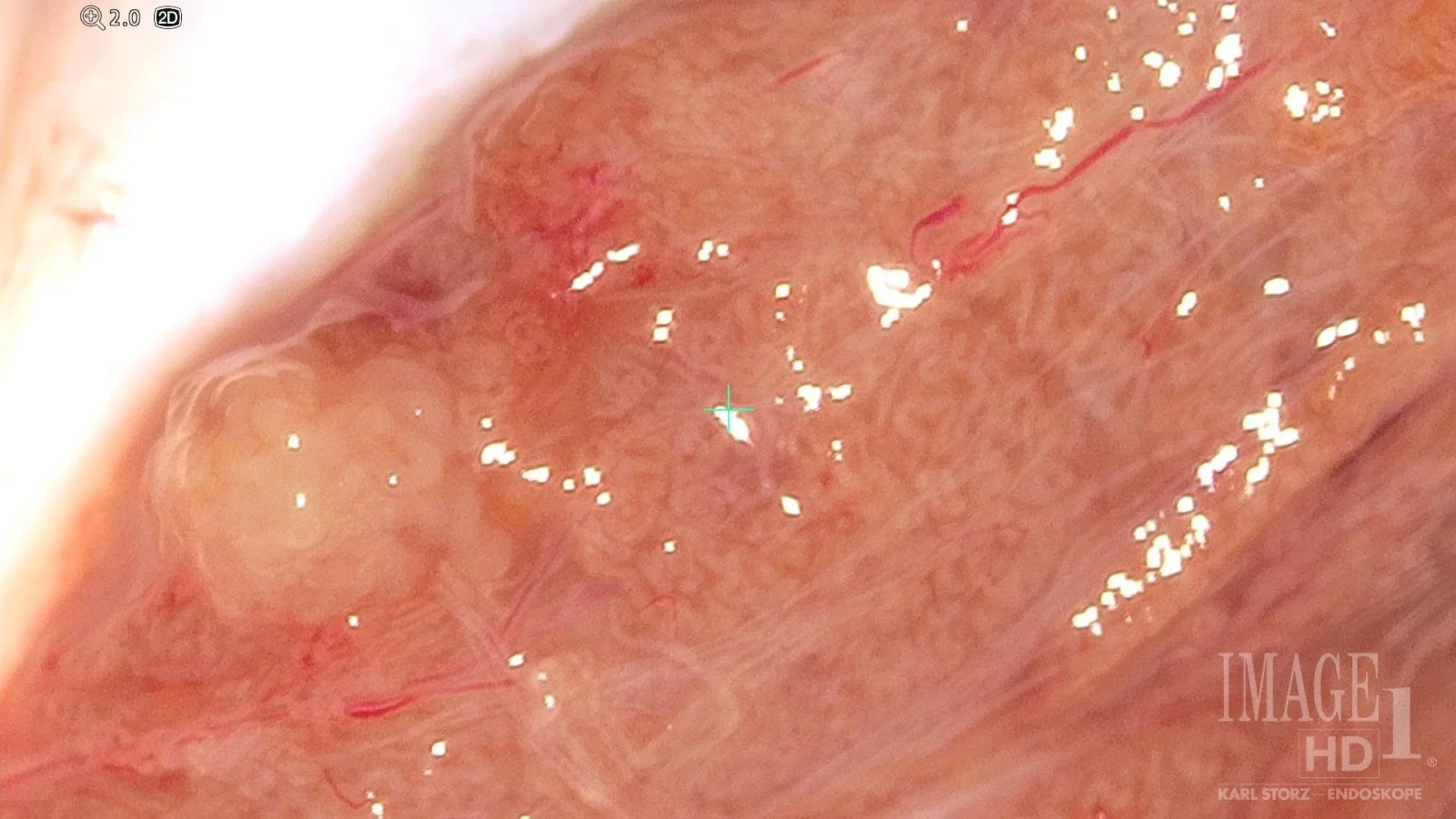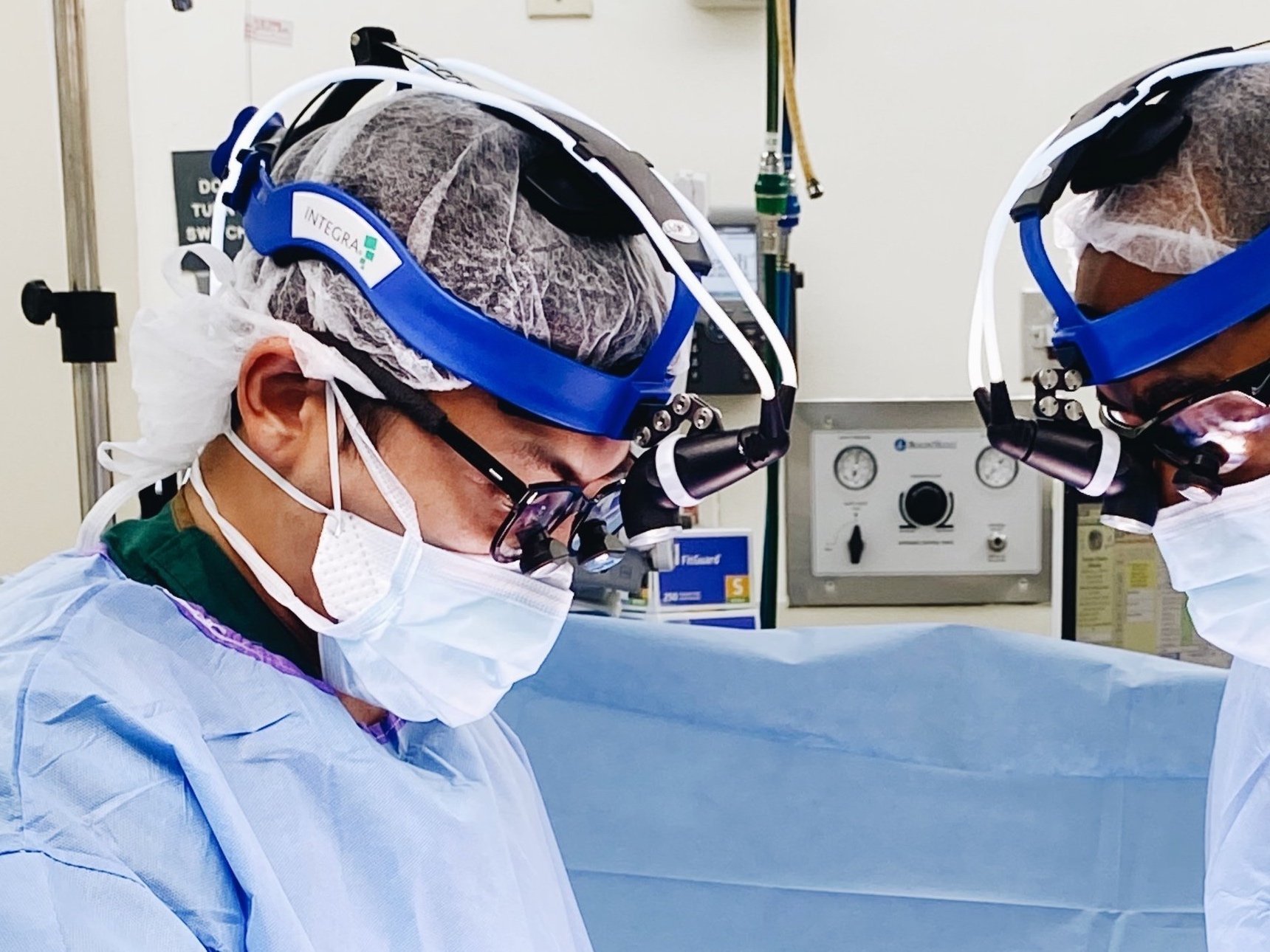Advanced Sperm Retrieval Techniques for Fertility Success
Helping you achieve your dream of parenthood with expert care and cutting-edge procedures (mTESE, MESA, TESE, PESA, TESA)
What is a sperm retrieval?
Sperm retrieval refers to specialized procedures used to obtain sperm directly from the testicle or epididymis when sperm is not present in the semen. This can be necessary for men with very low sperm counts, blockages in the reproductive tract, or conditions like vasectomy or congenital absence of the vas deferens.
Sperm retrieval is often performed when couples are pursuing assisted reproductive technologies such as in vitro fertilization (IVF) or intracytoplasmic sperm injection (ICSI), where even a small number of sperm can be used to fertilize eggs in the laboratory.
There are several types of sperm retrieval procedures:
TESA (Testicular Sperm Aspiration): Needle aspiration of sperm directly from the testicle.
PESA (Percutaneous Epididymal Sperm Aspiration): Sperm are aspirated from the epididymis through the skin.
TESE (Testicular Sperm Extraction): Small tissue samples are taken from the testicle to search for sperm.
Micro-TESE (Microsurgical Testicular Sperm Extraction): A microsurgical technique that carefully examines the testicular tissue under a high-powered microscope to find the best sperm, often used in men with non-obstructive azoospermia.
These procedures are typically performed under local or general anesthesia, and recovery is usually quick.
Sperm retrieval allows many men who otherwise would not be able to father a biological child to still have that opportunity when combined with modern fertility treatments.
Techniques We Offer
-
Microdissection Testicular Sperm Extraction (mTESE)
mTESE is an advanced surgical technique performed under high-powered magnification to locate areas of the testicle with active sperm production. This method is particularly effective in challenging cases of severe non-obstructive azoospermia. By targeting specific areas of sperm production, mTESE maximizes retrieval success while minimizing the removal of unnecessary tissue.
-
Testicular Sperm Extraction (TESE):
TESE involves the removal of small amounts of testicular tissue to retrieve viable sperm. No magnification is used for this procedure. The extracted sperm can then be used for assisted reproductive technologies such as intracytoplasmic sperm injection (ICSI).
-
Percutaneous Epididymal Sperm Aspiration (PESA):
PESA is a minimally invasive procedure that involves aspirating sperm directly from the epididymis using a fine needle. It is commonly used in cases of obstructive azoospermia, such as after a vasectomy, and is performed under local anesthesia. The procedure is quick, effective, and has minimal recovery time.
-
Testicular Sperm Aspiration (TESA)
TESA is a simple and efficient technique that uses a fine needle to aspirate sperm directly from the testicles. It is often performed in conjunction with in-vitro fertilization (IVF) or as part of a diagnostic evaluation for male infertility. TESA is well-tolerated and typically performed under local anesthesia.
Who is a candidate?
Men with obstructive or non-obstructive azoospermia.
Men who have undergone a vasectomy but wish to father children without reversal.
Those with genetic or hormonal causes of infertility.
Men seeking sperm preservation for fertility treatments or future use.
What is the process?
Consultation: Book an appointment here. We evaluate your health, surgical history, and goals to determine the best approach.
Procedure: Performed under local or general anesthesia, the procedure is tailored to ensure your comfort and achieve the best possible results.
Recovery: This will depend on the procedure that you had performed.
Next Steps: Retrieved sperm is either used immediately for fertility treatments or cryopreserved for future use.
Success depends on the underlying cause of infertility and the retrieval technique. Our clinic achieves high success rates, even in complex cases, by combining expertise with advanced technology.
“Microdissection TESE has shown success rates of up to 50% in retrieving viable sperm in cases of non-obstructive azoospermia.”
FAQs
-
No, the procedure is performed under local or general anesthesia to ensure your comfort. Postoperative discomfort is typically mild and can be managed with over-the-counter pain medications and ice packs.
-
Depending on the technique, sperm retrieval procedures can take anywhere from 30 minutes to 2 hours. We will discuss the estimated time for your specific case during your consultation.
-
Sperm retrieved through these procedures cannot be used for natural conception. Instead, the sperm is used in assisted reproductive technologies such as in-vitro fertilization (IVF) or intracytoplasmic sperm injection (ICSI).
-
Sperm that is not used immediately for fertility treatments can be cryopreserved (frozen) for future use. Cryopreservation ensures that viable sperm is available without the need for additional retrieval procedures.
-
Success rates vary depending on the underlying cause of infertility and the technique used. For example, microdissection TESE (mTESE) has a success rate of up to 50% in retrieving viable sperm in cases of non-obstructive azoospermia.
-
Risks are minimal but may include temporary swelling, bruising, infection, or discomfort at the retrieval site. Serious complications are extremely rare, especially when performed by an experienced specialist.
-
It is possible that no viable sperm may be found. If this occurs, we will discuss alternative options, such as donor sperm or other fertility treatments.
-
Yes, sperm retrieval is a common option for men who have had a vasectomy but wish to father children without undergoing a vasectomy reversal. Techniques like PESA and TESA are particularly effective in these cases.
-
Yes, sperm retrieval is often performed in conjunction with in-vitro fertilization (IVF) or intracytoplasmic sperm injection (ICSI) to maximize the chances of conception.
-
Cryopreserved sperm can remain viable indefinitely when stored in proper conditions. Many patients successfully use frozen sperm years after the retrieval procedure.
Why choose Dr. Kevin Chu for your Sperm Retrieval?
Board Certified, Fellowship-trained urologist and microsurgeon with years of experience in male fertility.
Specializing in modern, minimally invasive procedures.
Your privacy is our priority, and our discreet office ensures a comfortable experience.
Free parking and easy scheduling at our Redondo Beach location.




